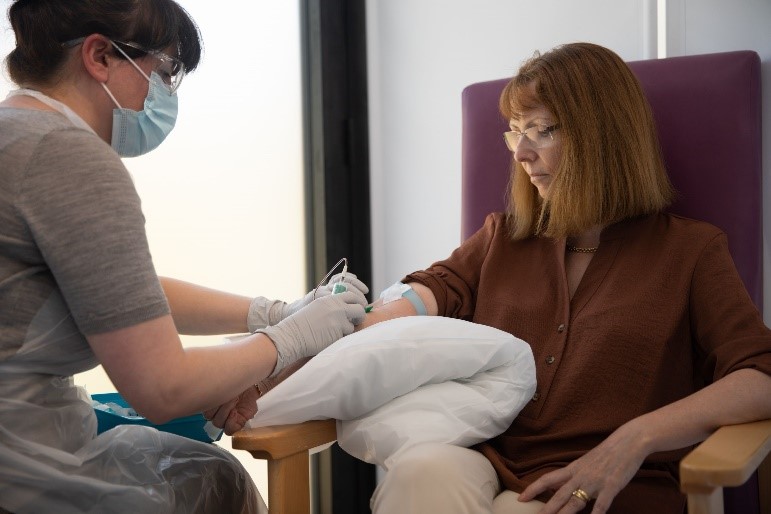Hull University Teaching Hospitals are to take part in a new trial to understand what happens when people receive different vaccines to protect them against Covid-19.
The study will follow volunteers over the next 10 months to see if there is any benefit to a person’s immunity when they receive different forms of the vaccine.
Researchers at Hull Royal and Castle Hill Hospital are aiming to recruit local people to the trial, particularly those from BAME communities, to take part in the mixed vaccine study.
Priyai Parkinson, Research Delivery Lead at Hull University Teaching Hospitals NHS Trust, said: “We are looking for volunteers to take part in a study to see what happens in the immune system when a second (boost) dose of Covid-19 vaccine is a different type to the first.
“We are looking for people who have already had their first dose of Covid-19 vaccine through the NHS vaccine roll out programme.
“If you are aged 50 years and over, and have received only one dose of Covid-19 vaccine from the NHS vaccine programme so far, then you may be eligible to take part in the study.”
The trust played a major part in the trial of the Oxford Astra Zeneca vaccine last year, one in every 45 participants recruited by the Hull team.
Adult volunteers of 50 years and older who have received one dose of either the Pfizer or AstraZeneca vaccine in the last eight to 12 weeks are being invited to take part in this latest trial, led by the Oxford Vaccine Group, part of the University of Oxford.
Those taking part in the randomised trial will either receive a booster dose which is the same as their initial injection or they will receive the Novavax or Moderna vaccine.
If you are interested in finding out more, visit www.comcovstudy.org.uk/participate-hull-comcov2 where you can access the Study Information Booklet.
Email hyp-tr.huth-comcov2trial@nhs.net if you would like any further information about the study.




